Vitamins for the skin may not be the first thing you think of when you want to improve your complexion. However, I want to challenge you to think again. If you truly want to take the best possible care of your skin, you have to start from the inside.
Why Think About Vitamins for the Skin?
It's easy to make a connection between what we eat and our health. We all know that some foods are better for our brain, our heart, and our digestive systems than others. The same is true for our body's largest organ: our skin.

There's simply no overstating the value of vitamins for the skin. Proper nutrition gives your skin the support it needs to stay youthful, clear, and smooth.
The Eight Best Vitamins for the Skin
Okay. So we're all agreed that your skin needs proper nutrition to look its best. Let's talk specifics. Which vitamins have the biggest impact on your skin? While a case can be made for many individual nutrients, the following eight will give you the biggest impact.
Vitamin A
What are the Benefits of Vitamin A, Anyway?
Have you ever heard that carrots give you great eyesight? That's because they're full of Vitamin A. These foods are also full of beta-carotene and provitamin A carotenoids, antioxidants that do great things for the skin. Getting plenty of these nutrients helps to keep free radicals from breaking down collagen. The results are healthier, more youthful-looking skin.
Vitamin A also stimulates fibroblasts. These cells lie in the deep layers of your skin and develop the tissue that keeps your skin healthy and smooth.

It can be applied topically as retinol, helping fight wrinkles and stimulate new collagen growth.
How to Get More Vitamin A
Work more Vitamin A into your diet by eating plenty of eggs, dairy, sweet potato, cantaloupe, and (of course) carrots. Or check out our Facial Scrub for a cleanser rich in this incredible vitamin.
Vitamin D
What are the Benefits of Vitamin D for Your Body?
Vitamin D is a little different from the other vitamins on this list. That's because the human body can synthesize it from sunlight. This is great news if you live in a warm climate. If your hometown tends to get dark and snowy for half the year, though, it's an easy nutrient to miss out on.

Vitamin D helps your body create healthy cells. You can see this in your skin's tone as well as in your body's ability to control psoriasis. Even better, topical Vitamin D application helps protect against wrinkles and environmental stressors.

How to Get More Vitamin D
Spend some time in the sun — ten to fifteen minutes will do the trick. Just please don't forget your sunscreen. (Even a few minutes in the sun, while great at flooding your body with rich vitamin D, can have some lasting, not so pretty effects on your skin.) You can also work more salmon, eggs, and fortified dairy and juice products into your diet.
Vitamin C
What are the Benefits of Vitamin C?
If you were to take a really, really close look at your skin, you'll find it's full of Vitamin C. There's a close link between this nutrient and your skin's health.
How? Much of it has to do with Vitamin C's role as one of the best antioxidants out there. Get enough Vitamin C and you'll equip your body to fight back against the damage caused by UV exposure. The result is fewer signs of aging and less risk of cancer.

But that's not all. Vitamin C helps boost the production of collagen, leading to firmer skin and fewer wrinkles. Getting enough Vitamin C can also help to repair dry skin and promote skin healing. All these reasons are precisely why citrus is a key ingredient of BBE's lavender citrus foaming facial wash. You can also find Vitamin C added in to our Tinted Facial Sunscreens and Anti Aging Face Cream!
How to Get More Vitamin C
While sailors were historically most prone to vitamin c-related illnesses —yee have de' scurvy, yar!
Vitamin E
What are the Benefits of Vitamin E?
Ready for another antioxidant? Add Vitamin E to your list. The reason it's one of the best vitamins for the skin comes down to its ability to fight free radicals. Adding it to both your diet and skincare regimen, such as with Beauty by Earth's Anti-Aging Serum or Glow Oil, will keep your skin looking younger longer.
Vitamin E is doubly important if you spend time in the sun. Research shows that when applied topically, Vitamin E can help reduce the amount of UV damage your skin experiences when exposed to the sun. Of course, that's no excuse not to wear your sunscreen!

Finally, there's evidence that topical use of Vitamin E can help keep scars from forming. This may be because free radicals make it more difficult for injured skin to heal.
How to Get More Vitamin E
Eat your greens! Leafy green vegetables are full of Vitamin E. You'll also find it in many skin care products.
Vitamin K

What are the Benefits of Vitamin K?
Remember the last time you got a cut or scrape? It probably healed within a few days. That's all thanks to Vitamin K, which plays an essential role in blood clotting.
This characteristic of Vitamin K also makes it an essential vitamin for the skin. This nutrient helps to reduce issues that cause discoloration, including dark circles under the eye, spider veins, and scars.
Vitamin K is also an important vitamin for anyone who bruises easily. Skin care products that include this vitamin help bruises heal more quickly. They can also help reduce redness and inflammation.
How to get more Vitamin K
You'll find plenty of Vitamin K in spinach, kale, lettuce, cabbage, and green beans.
Vitamin B12

What are the Benefits of Vitamin B12?
Here's your vocabulary word of the day: cobalamin. That's another way of saying Vitamin B12, an important entry on the list of vitamins for the skin.
B12 is one of the eight vitamins you'll find in the Vitamin B complex. While all of these compounds play a role in keeping you healthy, B12 is particularly important for your body's biggest organ. Part of its role is to facilitate cell reproduction and support your veins and red blood cells in running smoothly.

Vitamin B12 benefits the hair just as much as it benefits the skin, so there's plenty of reason to make sure you're getting enough in your diet.
How to Get more Vitamin B12
Meats like salmon and beef are chock full of B12. If you're vegetarian or vegan, reach for fortified cereals to increase your daily intake.
Folic Acid
What are the Benefits of Folic Acid?
Folic acid is best known for helping mothers have healthy pregnancies, but you don't need a bun in the oven to benefit from this important nutrient. Folic acid plays a key role in helping your body create collagen, which is a must for smooth, young-looking skin.

Like many of the other vitamins for the skin on this list, folic acid is an antioxidant. When it comes to the skin, this means it helps reduce the signs of aging. There's also evidence that this nutrient increases skin barrier function. This helps keep moisture in and environmental damage out.
How to Get More of It: You'll find lots of folic acid in leafy greens, bananas, tomatoes, strawberries, and broccoli.
Omega-3 Fatty Acids

What are the Benefits of Omega-3 Fatty Acids?
Are you getting enough good fat in your diet? If you're not, it might show up in your skin. Omega-3 fatty acids are healthy fats that improve your health from head to toe.
There's some really interesting research being done about the interaction between Omega-3 fatty acids and sun exposure. Preliminary studies show that people who take a fish oil supplement can spend more time in the sun before they burn than people who don't. Part of this has to do with Omega-3's anti-inflammatory properties. These same properties help reduce wrinkles and keep your skin looking young.
How to Get More Omega-3
You'll find Omega-3s in fish like salmon and tuna, as well as in walnuts and flaxseed.
Do you swear by any of these vitamins for the skin? How do you keep your complexion looking its best? Let us know in the comments below!
Virtual hugs and waves,
Amy + Camille
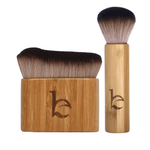







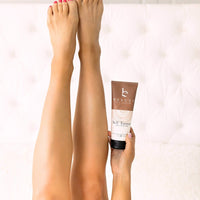








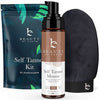

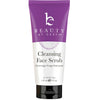


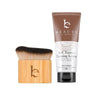









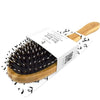
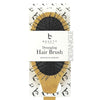


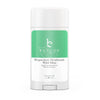





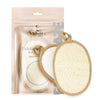
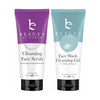










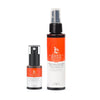




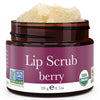
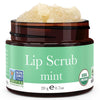
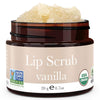





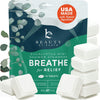
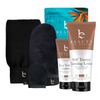
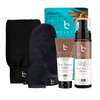















join the conversation